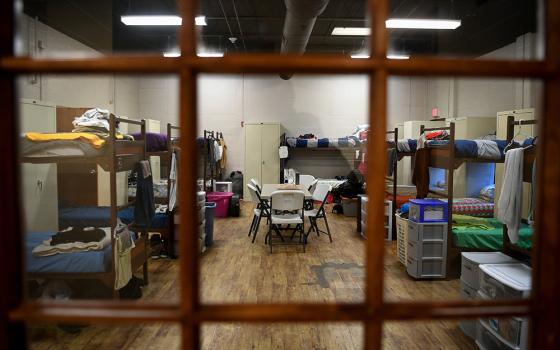In the small cliff-side village of Frías in northern Spain, visitors are welcomed by the aroma of steaks, chops and sausages being grilled on a bed of dead but still intertwined grapevines. The vines that once yielded rich, juicy grapes on terraced hillsides are now, even in death, attesting to their unity and usefulness. They impart a unique flavor to whatever is cooked on them and burn much more cleanly than charcoal or wood.

| Fifth Sunday of Easter |
| Acts 9:26-31 Psalm 22 1 John 3:18-24 John 15:1-8 |
When I experienced a grilling session like this in Frías, today’s Johannine Gospel about Jesus, the true vine, sprang immediately to my mind. The grapevine’s branches are inextricably bound to and interwoven around the vine, and this is what gives the plant its strength and fruitfulness. In the same way, the strength and fruitfulness of believers and their ministry reside in the fact that they remain in Jesus.
One with him in faith, will, vision and purpose, believers are thereby graced, both individually and as church, with the capacity to “love, not in word or speech but in deed and truth” (second reading). The author of 1 John called upon his community to make their love real and their faith authentic by keeping the commandments -- that is, by believing in Jesus and loving one another. In so doing, believers are assured that the Spirit remains in them, guiding them in justice and righteousness, in peace and harmony.
Continuing this theme in the Gospel, the Johannine author seemed to have the “secessionists” (or antichrists) in the community in mind when he had Jesus saying, “Without me, you can do nothing.”
In good times and in bad, when they agree and especially when they disagree, all the members of the community, like branches entwined on a vine, are to remain united with one another in Christ.
Imagine what might have happened if Pope Leo X and Martin Luther had worked harder to remain together in Christ rather than dismissing one another as a “wild boar” in the Lord’s vineyard (Exsurge Domine, Leo X, 1520), or as “one whose wealth is greater than the wealth of the richest Crassus,” building St. Peter’s Basilica “with the money of poor believers” rather than with his own money (Thesis 86, Martin Luther, 1517).
Despite disagreement and dissension, the community of believers is strongest when its members remain in Jesus as he remains in them.
A story is told among the peoples of South India about a wealthy landowner who had four quarrelsome sons. Jealous of one another, they were constantly at odds, much to the chagrin of their father. When he sensed that death was near, the father called his sons and divided his property among them. Then he called for some sticks to be brought, tied tightly into a bundle, and he told each of his sons to try to break the bundle. Not one could do it. Then, the father asked for the sticks to be taken out of the bundle. “Try now,” he said, and with very little effort, they could break each single stick.
Thus the father taught the brothers that strength that comes from unity: United, they would stand, but divided, each would fall.
The early church learned this lesson -- but not without difficulty, as is reflected in the first reading from Acts. After his conversion experience on the Damascus road, Saul, who would become Paul, tried to join the disciples. He was met with distrust and even fear because of his former fierceness in persecuting the followers of Jesus.
In order to be accepted by the community and allowed to serve with them in preaching the good news of salvation, Paul required the help of Barnabas, who spoke up for Paul and defended him. Surely, every community needs its Barnabases: people with insight into the character and qualities of others; people who will be open to the surprises God may send; people who will allow others to prove themselves rather than judging and dismissing them. Barnabas saw that there was room for someone as different and as “prickly” as Saul.
To their credit, the community also saw something in Saul, and when the situation became too volatile (“they tried to kill him”), they sent him home to Tarsus to protect him. Meanwhile, the Holy Spirit remained with the growing community, assuring them daily of the presence of Jesus with them.
Because of the Spirit and the wisdom of the divine Vine Grower, the vine of the church continues to grow, to bear fruit and to be pruned so as to bear even more. Currently, some of this pruning has come in the form of criticism leveled by Pope Francis at the leaders of the church. He called them, and he calls all of us, to examine our consciences and confess our sins of pride, greed, rigidity, harshness, mental and spiritual “petrification,” gossip and hypocrisy, so as to remain in Christ, the true and life-giving vine.
[Patricia Sánchez holds a master’s degree in literature and religion of the Bible from a joint degree program at Columbia University and Union Theological Seminary in New York.]



